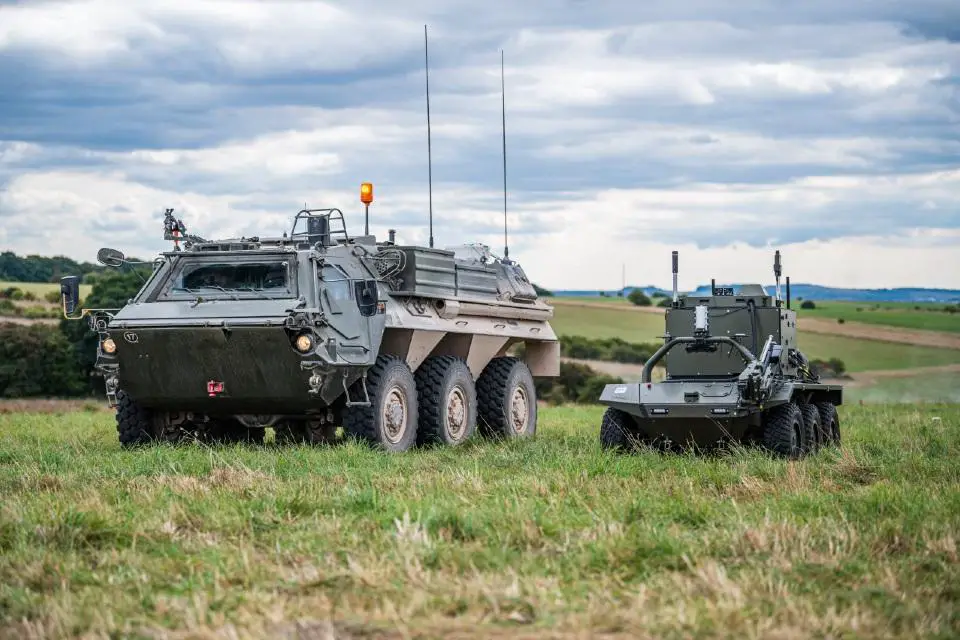The UK Ministry of Defence’s Defence Science and Technology Laboratory (Dstl) has successful conducted the Hybrid Area Reconnaissance and Survey (HARS) field trial. The use of autonomous uncrewed systems for the recce and survey of areas for chemical and radiological material is a step closer to becoming a reality. The technology concept could help keep troops safe, improve efficiency and give the UK armed forces an operational advantage in the future. The successful Hybrid Area Reconnaissance and Survey (HARS) field trial has taken place to demonstrate the concept of this cutting-edge research. This project is a collaboration between the Defence Science and Technology Laboratory (Dstl), the wider Ministry of Defence (MOD) and industry.
Dstl’s HARS Trial Lead Scientist Andy Martin said:” This trial aimed to test the feasibility of the concept and the maturity of the technology. This technology offers an innovative approach, which could significantly change the military’s capabilities in the future by reducing the hazard to soldiers and acting as a force multiplier. That is quite an exciting thing to be involved in.”
Dstl Lead Operational Analyst Emma said:”We know autonomy could be useful to do those repetitive jobs where people are at risk and we can take them away from that risk. It has been nice to see it actually in practice, moving around out in the field and demonstrating that this is somewhere that, if we continue to put some work into it, we could make some real progress and do things very differently to the way they’re done now.”

14 Troop Leader, FALCON Squadron, Sebastian, said:”This trial is important because it is working with future technologies so hopefully we will be able to have more time on target, less risk to personnel and better capability to detect whatever is there.”
HORIBA MIRA Chief Engineer Andy Maloney said:”This has been a great example of MOD, industry, and end users working together with the expertise from Dstl and the stakeholders able to influence the systems we’re developing. The adaptability of the Viking UGV provides an excellent basis for development of new payloads and novel autonomous behaviours.”
Adding this sensor technology to a modular ‘pallet’ means it is more scalable and cost-effective, as it could then be mounted onto the appropriate platform as and when required. The trial took place over 5 weeks on Salisbury Plain, working with soldiers from FALCON Squadron, 28 Engineer Regiment (C-CBRN) doing back-to-back trials to compare the concept against the performance of a crewed system.The platform used in the trial was the recently developed concept demonstrator which consisted of an uncrewed ground vehicle (Viking) with a chemical and radiological sensor payload: 2 mass spectrometers to identify deposited chemicals on the ground, 2 vapour sensors to detect volatile chemicals and a gamma radiation spectrometer to detect and identify radiological hazards















